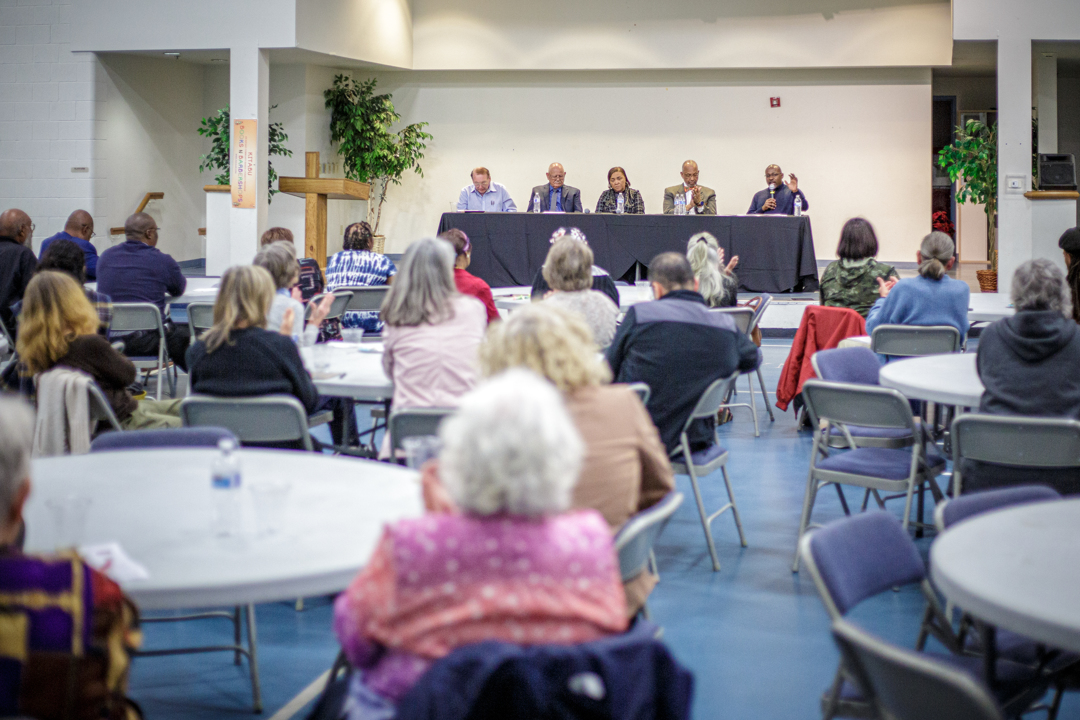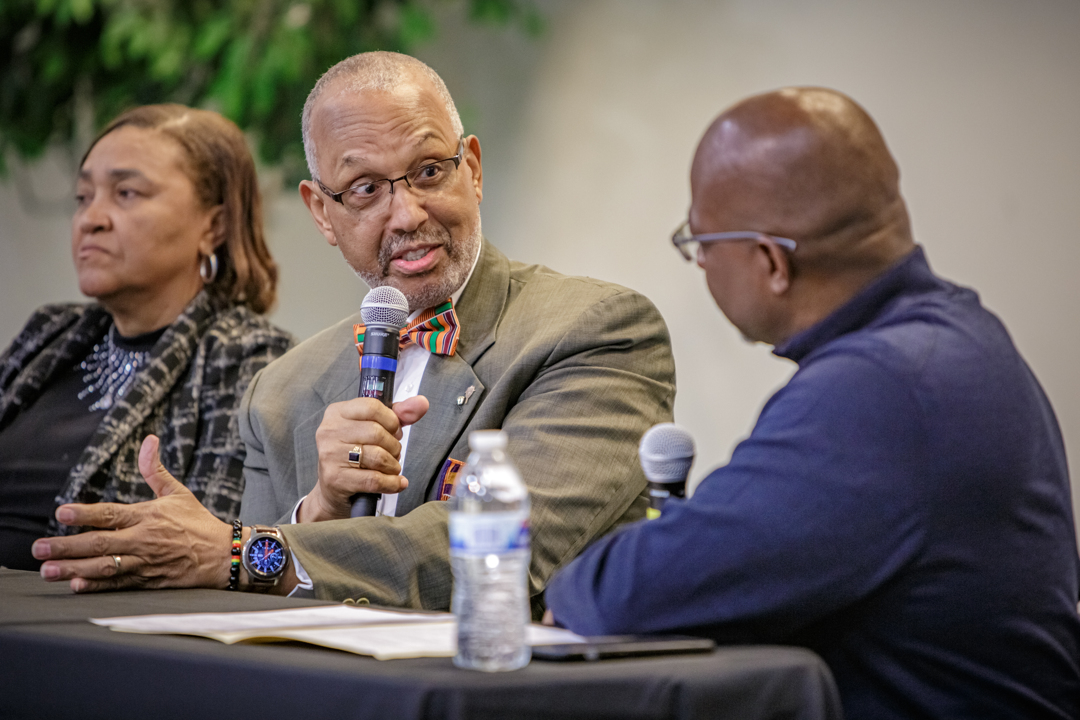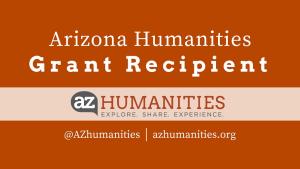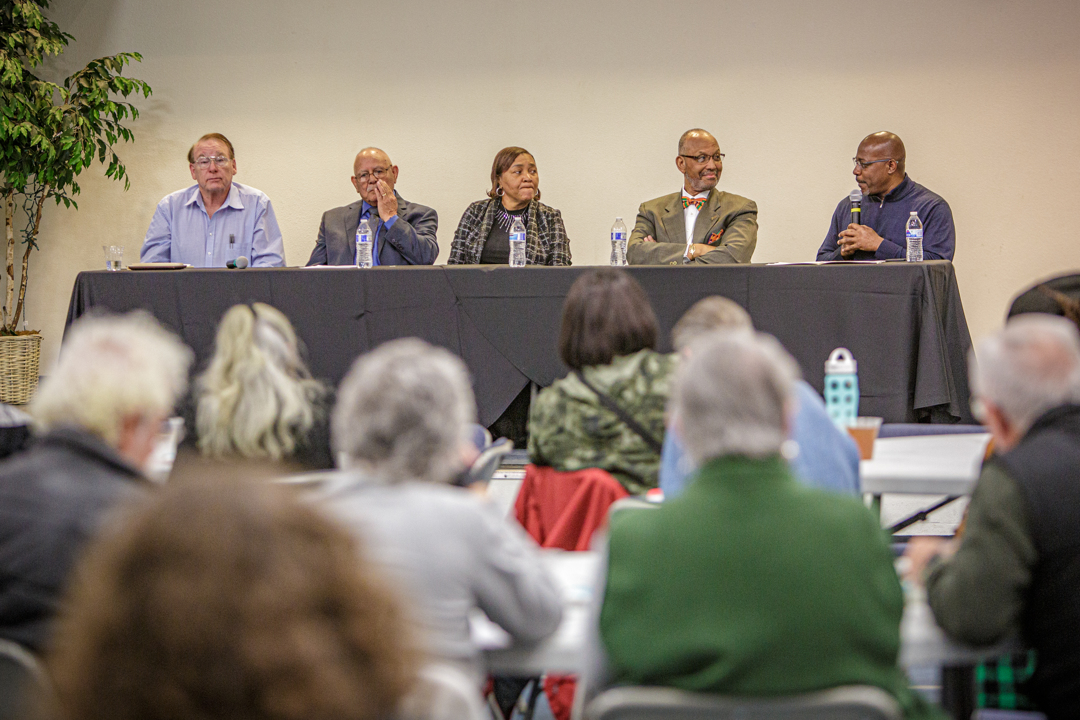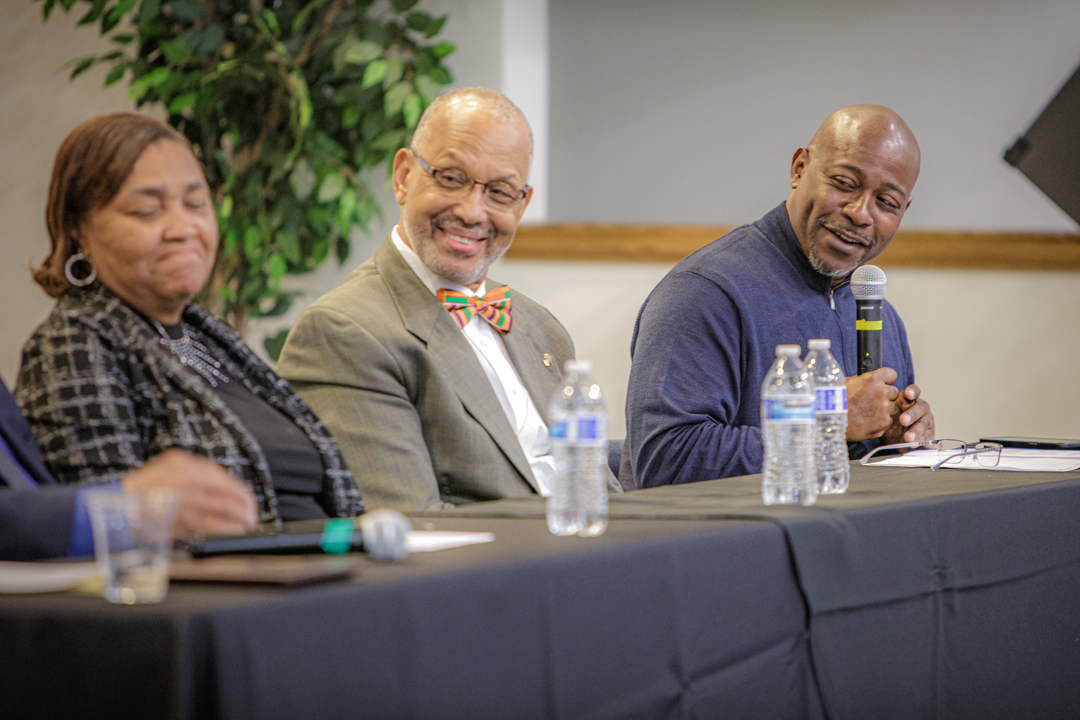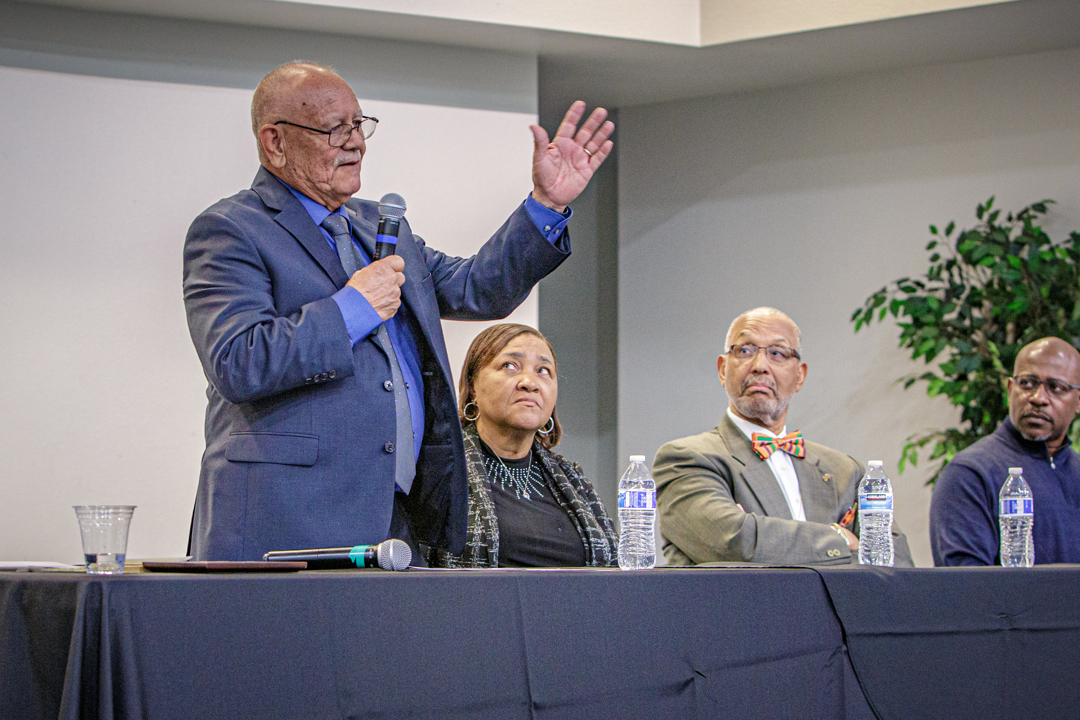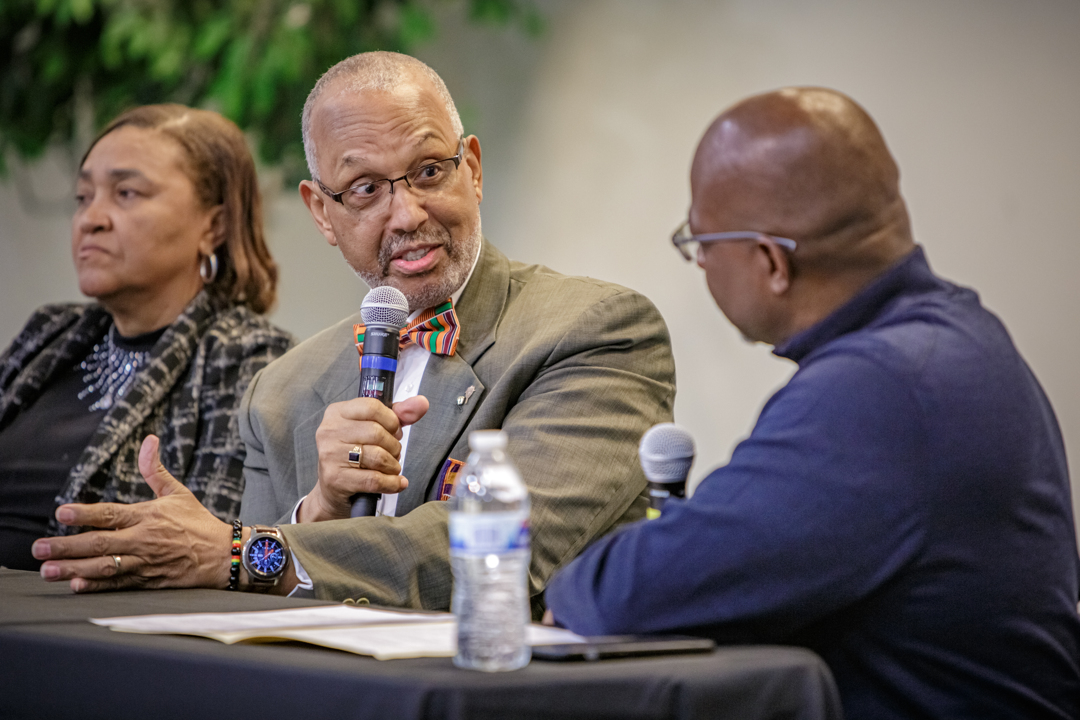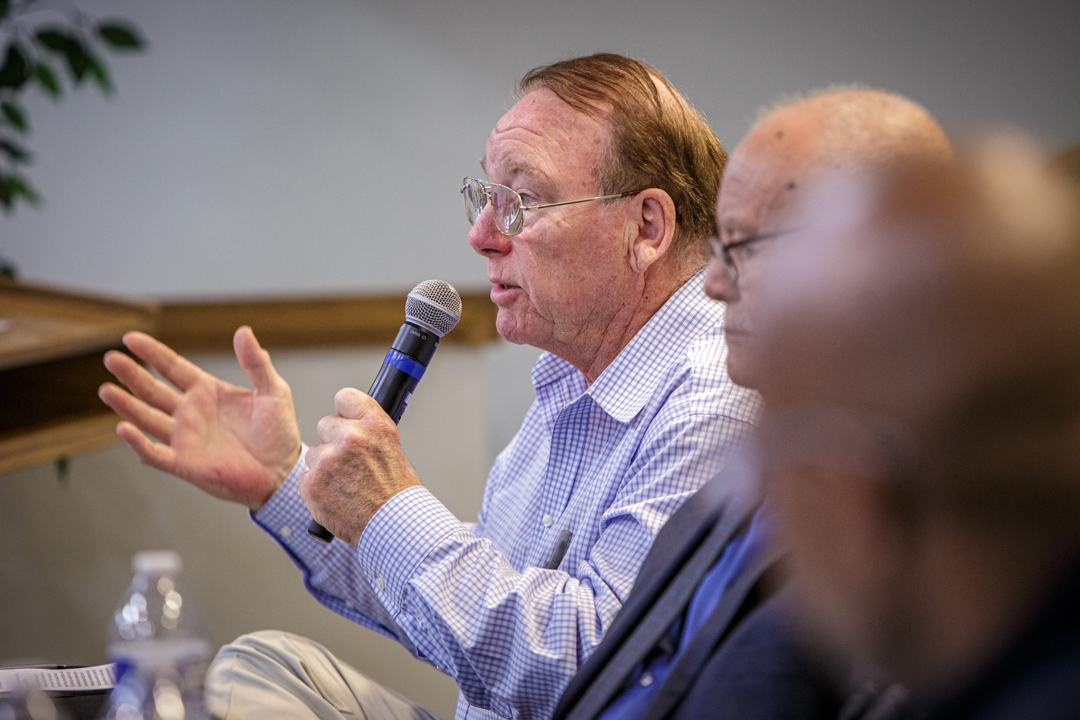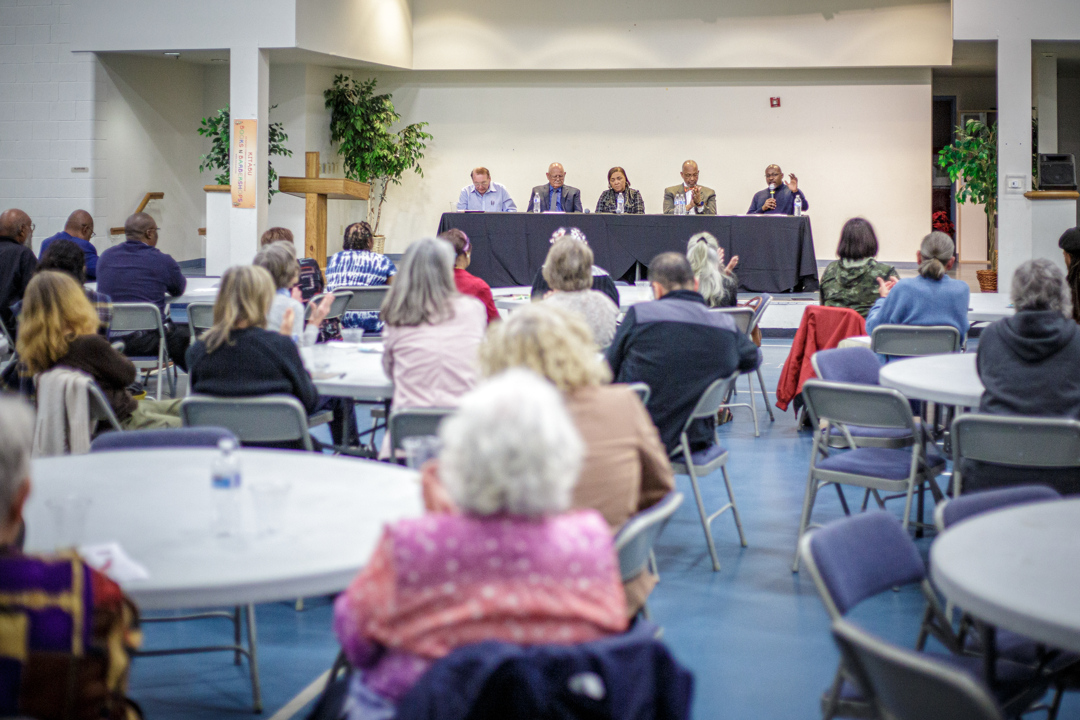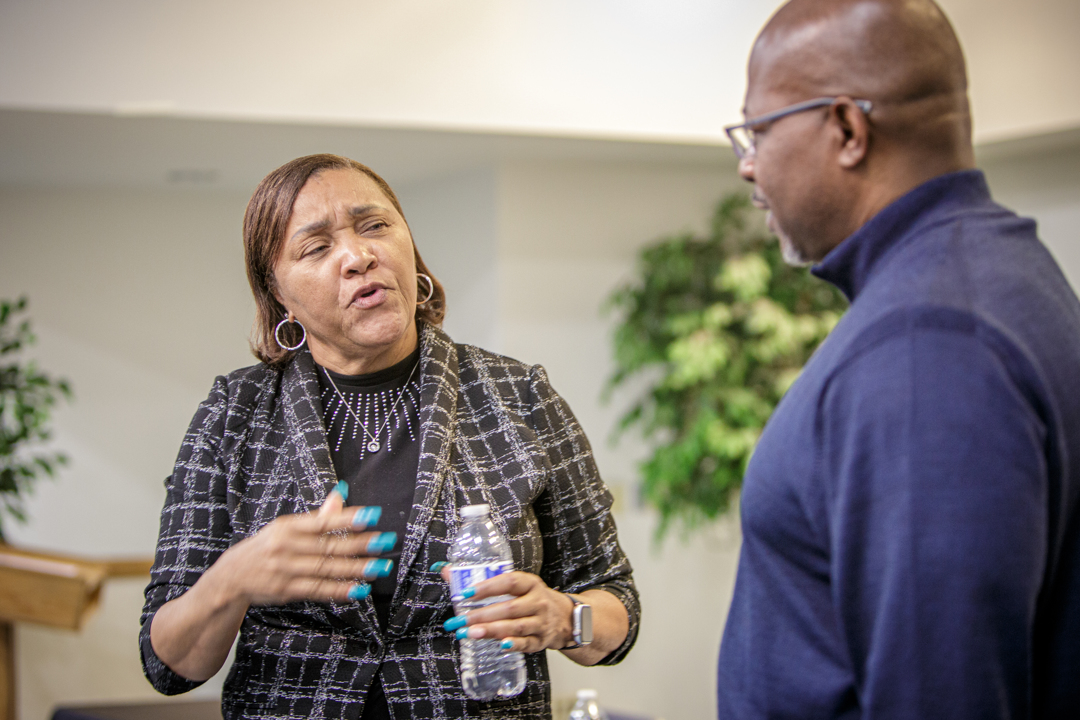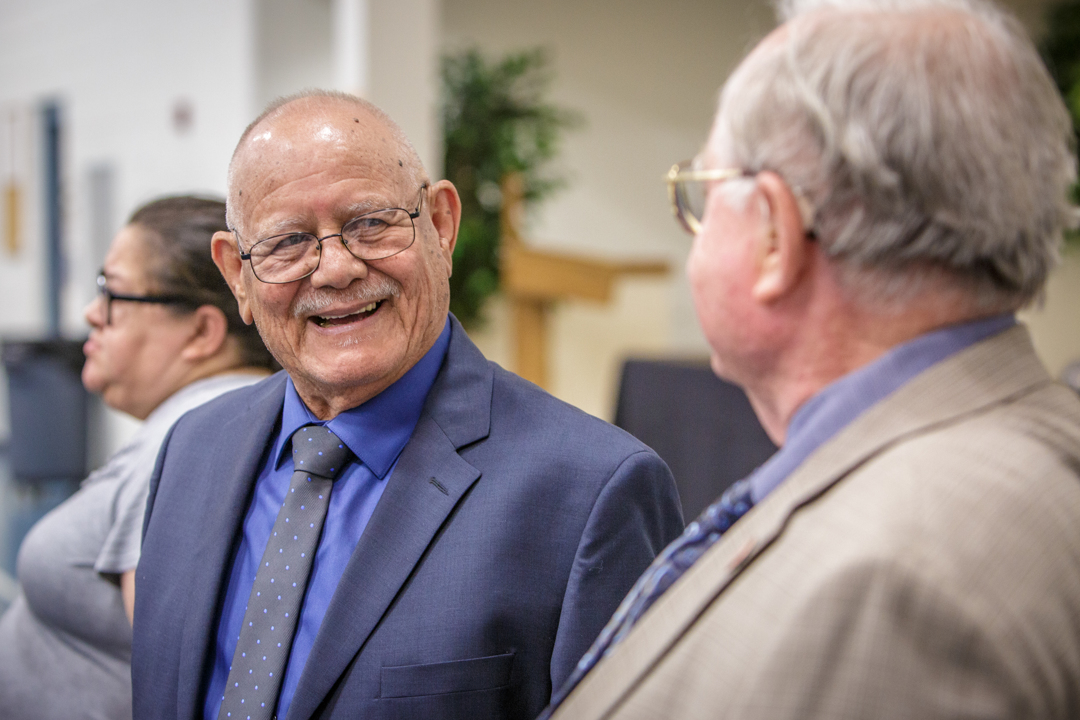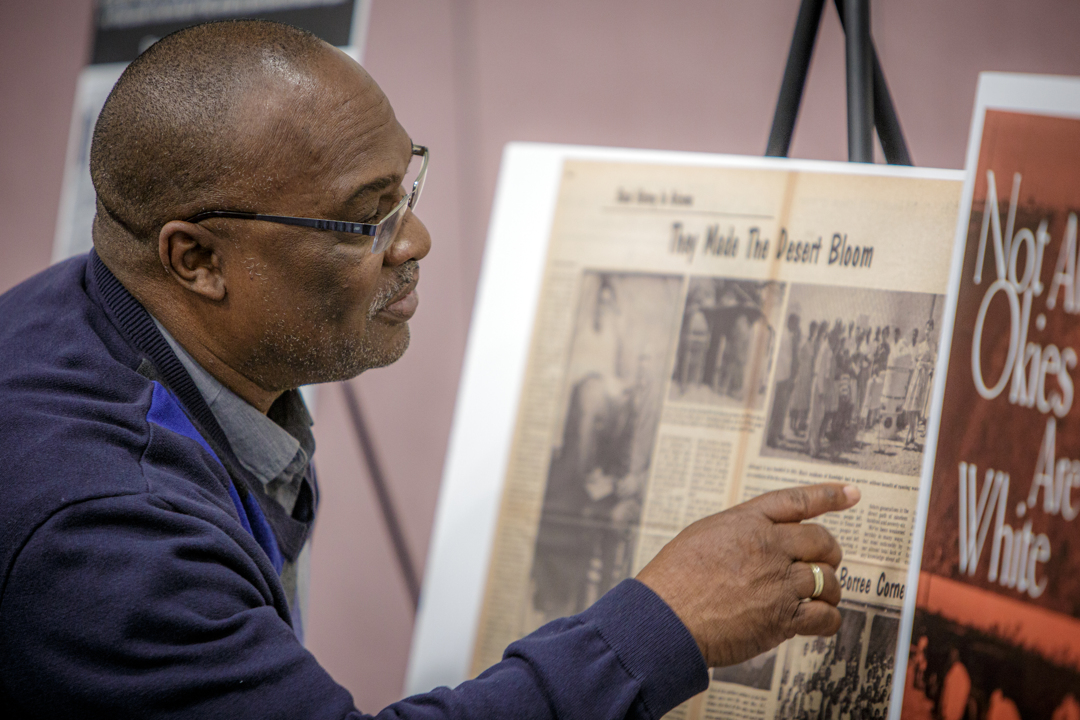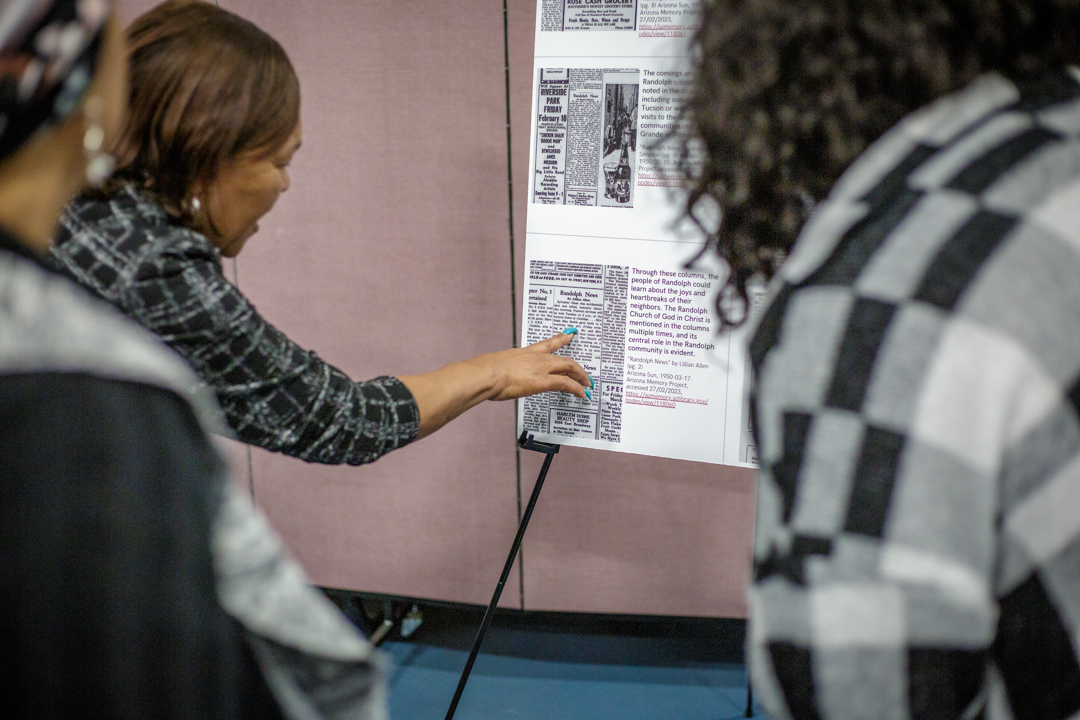The Desert Humanities Initiative fosters work in the arts and humanities that is in relation to desert spaces. We seek to connect that work to projects in the sciences and social sciences and to share it with communities beyond ASU.
Initiative Director Jason Bruner and Humanities Institute Associate Director Curtis Austin, were awarded an Arizona Humanities grant on August 28, 2023 for their “Mapping Randolph” project, which they will develop with the expertise of Matt Toro in ASU Libraries. Randolph, AZ was settled in the 1920s and '30s by Black families who migrated westwards to work in the Gila River Valley’s cotton fields. This project will make accessible the unique history of Randolph by embedding oral history excerpts in a dynamic digital map of the region that will visualize its many changes from the 1920s to the present.
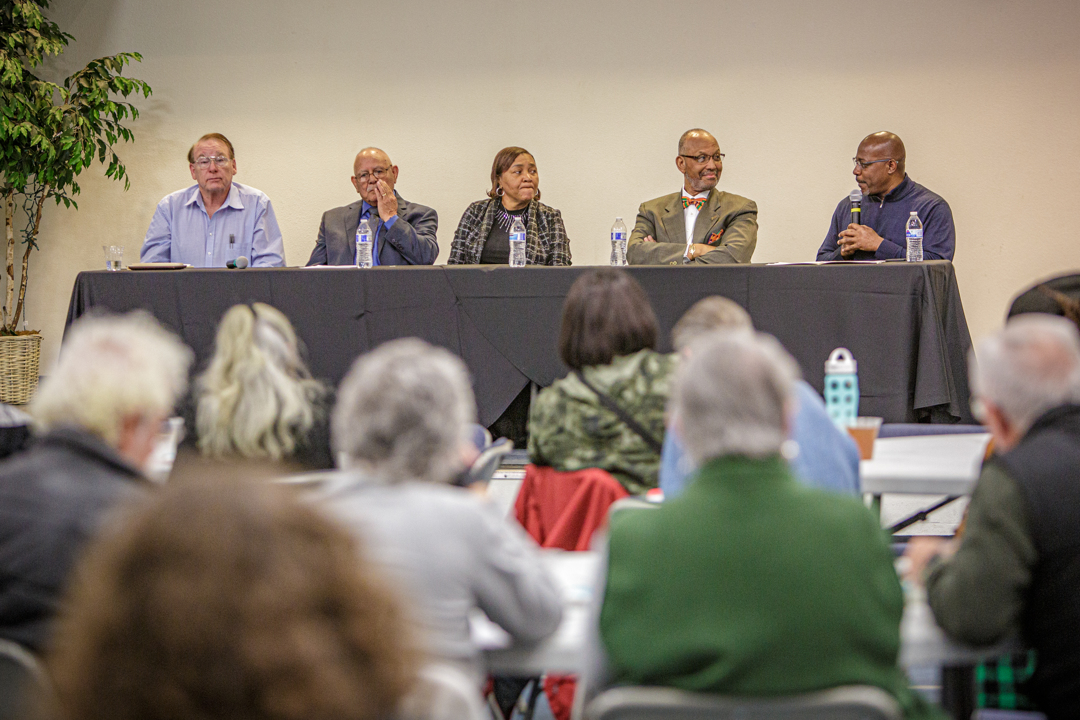
Community-Engaged Work in Arizona
We work to care for and support Arizona’s diverse cultures and communities. In 2023, Desert Humanities supported several projects that are working to recover local histories, preserve them, and share them in new ways. This includes an oral history and archival project at Boyce Thompson Arboretum, in preparation for the arboretum’s 100th anniversary in 2024 (in partnership with Public History at ASU). Desert Humanities is also supporting Tohono O’odham Young Voices in their production of documentary podcasts in Fall 2023. In collaboration with ASU Libraries Black Collections (Jessica Salow), the Arizona State Office of Historical Preservation (Kathryn Leonard), and Public History at ASU, we are supporting the collection and digital archiving of oral histories and historical documents in the town of Randolph, AZ. You can read more about the town’s unique history, as well as about Desert Humanities most recent community outreach, The Power of Community, with members of the Randolph community.
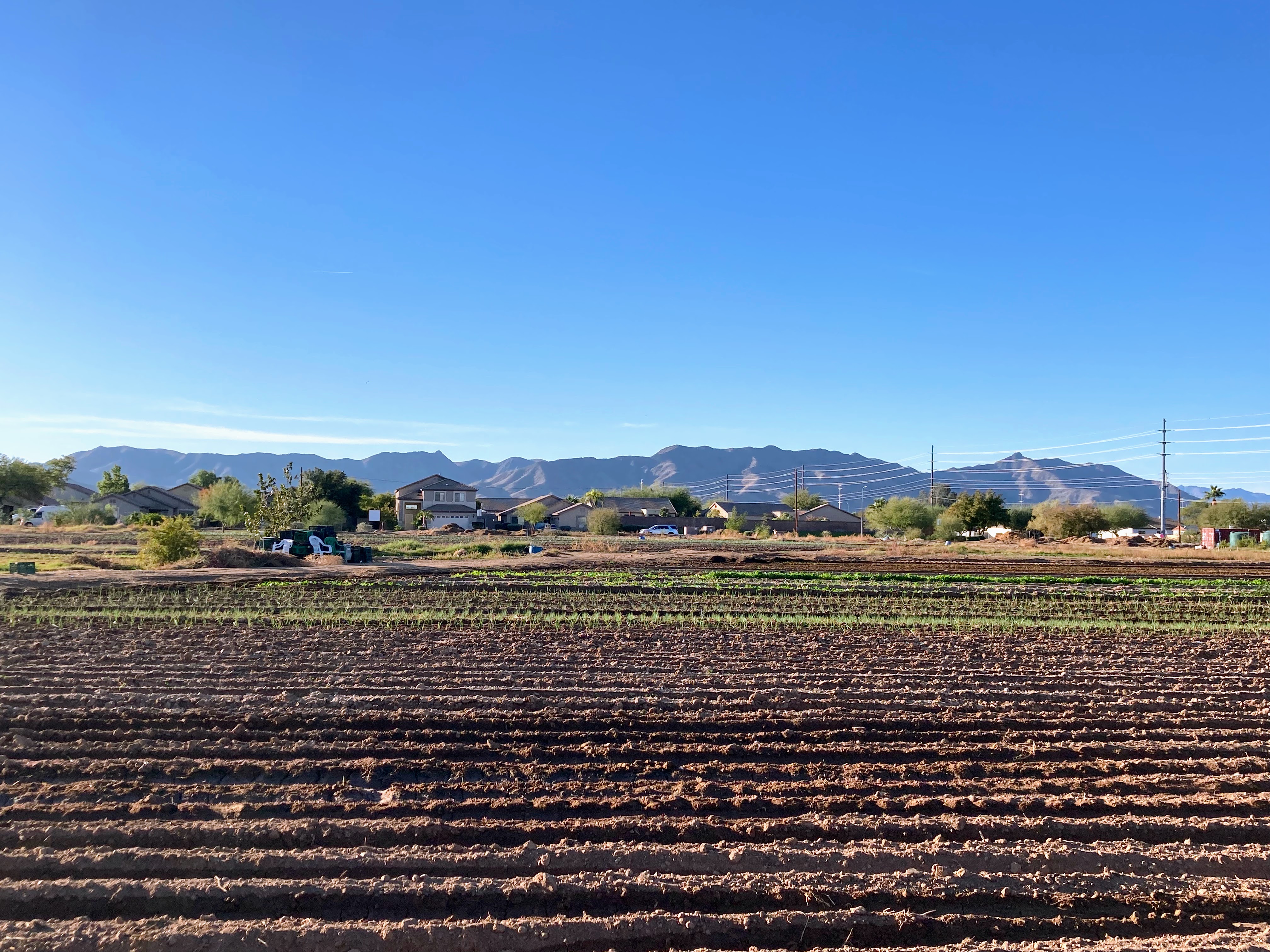
Food and Water in the Desert Southwest
We seek to connect arts and humanities work with the cultural, environmental, social, and political challenges that are facing Arizona communities, especially in relation to food/agriculture and water. Desert Humanities hosts a working group that seeks to develop projects pertaining to food, ethics, and moral values. We also co-sponsored a conference for minority farmers and ranchers. In these ways, we seek to do work that is socially embedded and in the service of the communities who live in the desert Southwest.
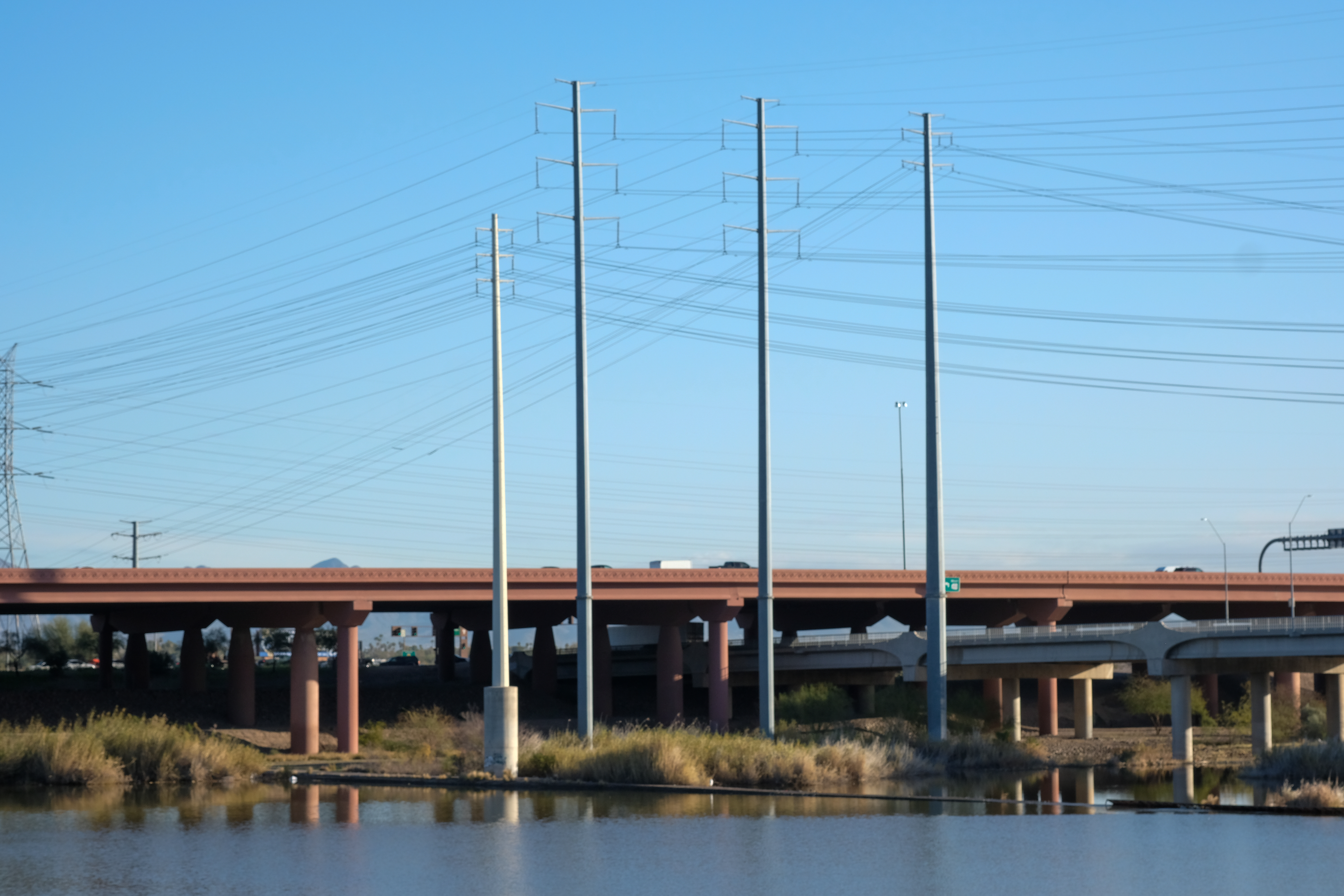
Interdisciplinary Connections, Transdisciplinary Possibilities
The Desert Humanities Initiative supports disciplinary, interdisciplinary, and transdisciplinary projects relating to deserts and desert spaces. We seek to connect artistic and humanistic methods, skills, and expertise with projects in the sciences and social sciences. To this end, we will host Fall and Spring workshops whose aim is to build collaborative research projects that fully incorporate artists, humanists, social scientists, and scientists.
